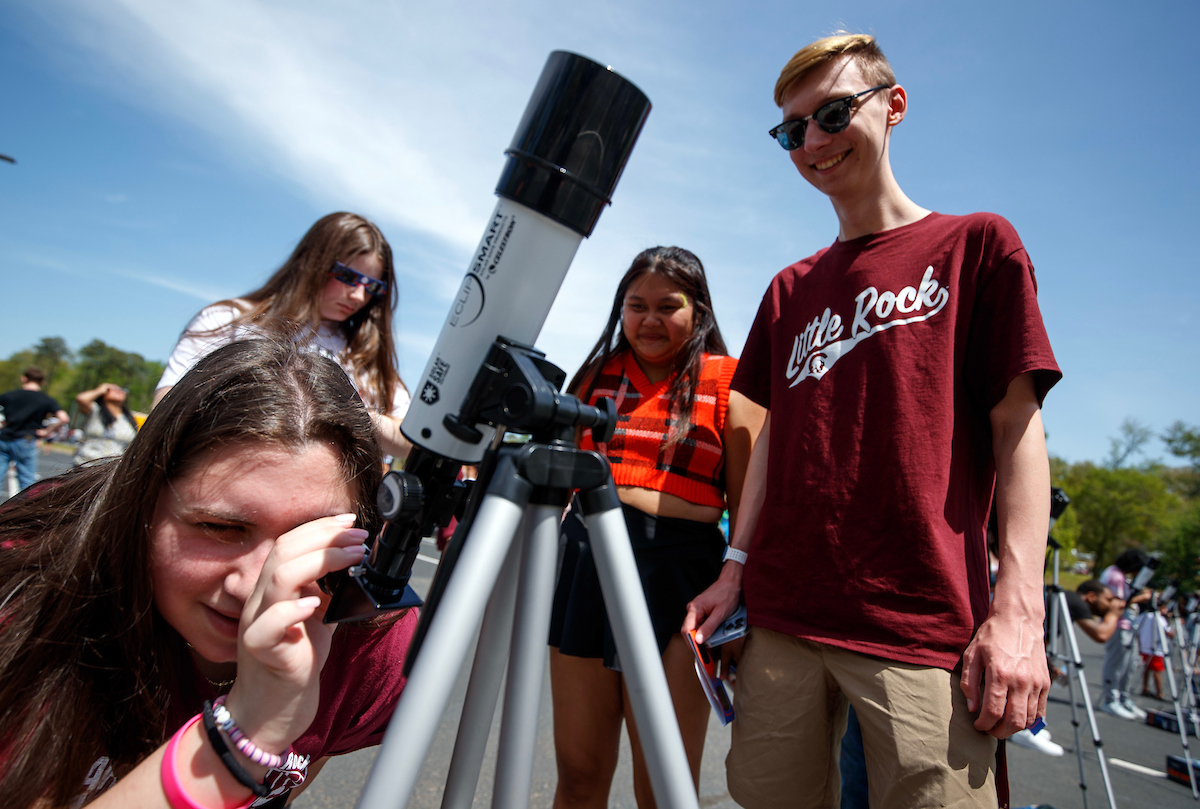The Arkansas Space Grant Consortium (ASGC), headquartered at the University of Arkansas at Little Rock, has been awarded an $800,000 grant by NASA to support workforce development, STEM education, and aerospace research throughout the state.
The funding is part of NASA’s national Space Grant College and Fellowship Program, which will provide up to $870,000 annually to each of the 52 institutions across the U.S., including the District of Columbia and Puerto Rico, over the next four years.
Administered through NASA’s Office of STEM Engagement, the program is designed to build a skilled workforce equipped to advance NASA’s mission and strengthen the country’s aerospace sector.
“This is our prime award and the foundation of our efforts to develop the next generation of scientists, engineers, and innovators in Arkansas,” said Dr. Constance Meadors, director of the Arkansas Space Grant Consortium. “It allows us to fund student internships, student and faculty-led research, and educational outreach across all corners of the state.”
The ASGC supports 18 colleges and universities through a variety of programs, including grants, student internships, and collaborative research projects aligned with NASA’s mission directorates. In 2025 alone, 10 Arkansas students will participate in internships at NASA centers, nine of which were funded by a previous grant.
“Being a NASA intern is an amazing opportunity that has launched my engineering, teamwork, and communication skills in ways I could have never imagined,” said Jack Seabaugh, a UA Little Rock senior who is completing his third summer internship at NASA. “My internships at this organization have exposed me to so many incredible learning and professional development opportunities, as well as introducing me to the engineering discipline I now hope to spend my future career in. I never would have acquired this skillset, hands-on experience, and set of interests if it were not for the internship opportunities I’ve had at NASA.”
Initiatives supported by the award include hands-on opportunities in aerospace technologies like high-altitude ballooning, Arkansas CubeSat development, autonomous vehicle competitions, and competitive rocket programs. The consortium also offers student research awards, STEM-based outreach, and its new SOUL (Students Observing and Understanding in the Lab) initiative, which mentors emerging student researchers in NASA-related projects.
One of the new initiatives supported by this year’s grant is the portable planetarium program. Originally housed at UA Little Rock, portable planetariums will be available at affiliate campuses across the state, including Southern Arkansas University, Henderson State University, the University of Central Arkansas, and the University of Arkansas at Pine Bluff, starting in the 2025-26 academic year.
A traveling portable planetarium grew in popularity leading up to the total solar eclipse in 2024. During the 2024-25 school year, UA Little Rock students who were members of the Aerospace Club undertook training that allowed them to take the planetarium to schools, libraries, and community organizations. The initiative allows broader access to space science education and outreach for schools and communities in every region of Arkansas.
“After the success of the portable planetarium in 2024, this has given us a great way to expand the program,” Meadors said. “The idea is to have portable planetariums all across the state so we can refer schools and community members to our affiliate partner campus with the nearest planetarium. We were able to partner with the Aerospace Club at UA Little Rock, and it’s been a great experience for us and the students. I’ve been fortunate to have students who have been great leaders.”
Additionally, the ASGC is preparing to launch its first NASA ASTRO Camp program in Arkansas this fall. The camp will provide faculty and students with comprehensive materials—from lesson plans to outreach supplies—designed to immerse young learners in space exploration, STEM topics, and authentic NASA experiences.
Related
(Except for the headline, this story has not been edited by PostX News and is published from a syndicated feed.)

